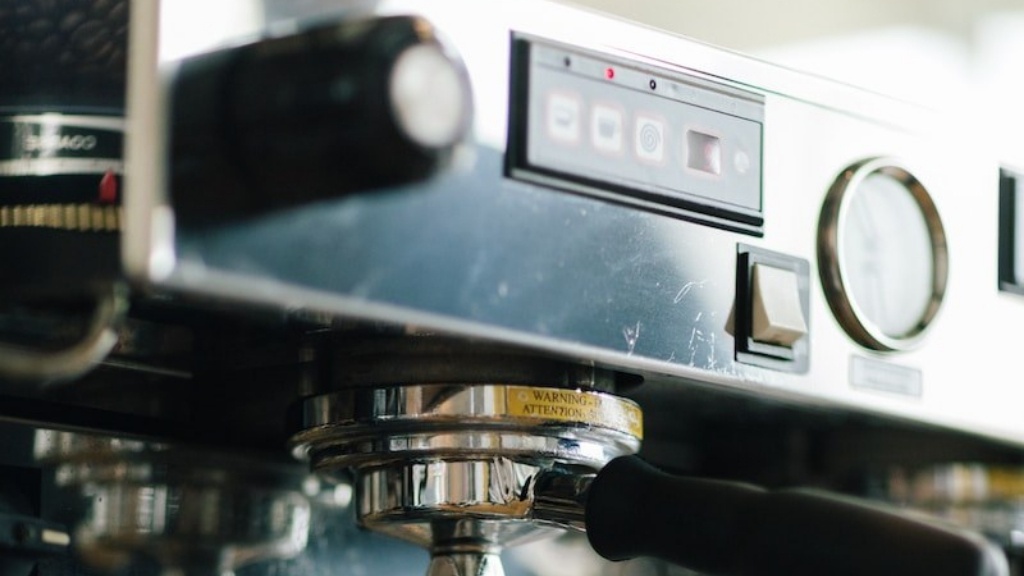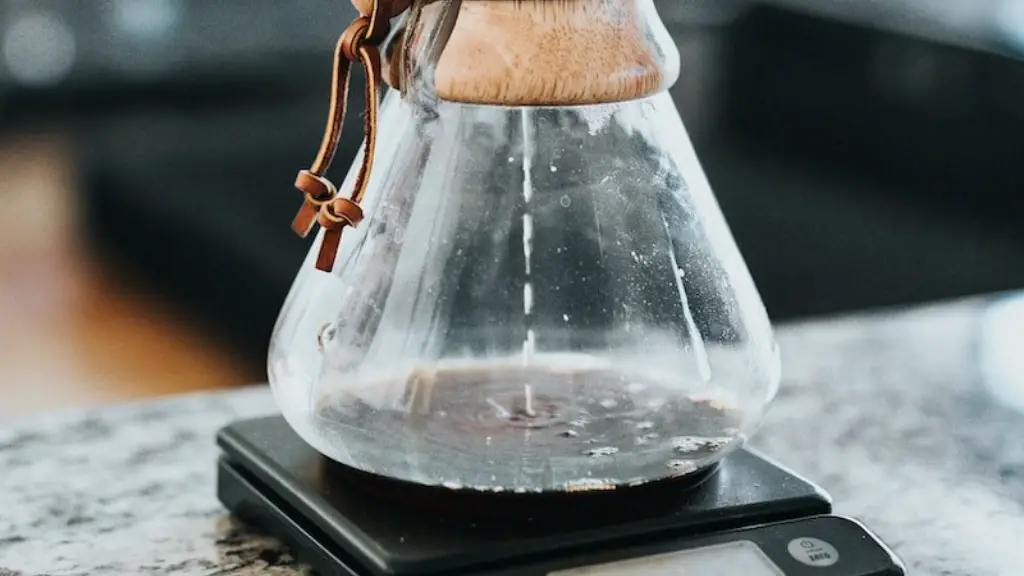The Benefits of Drinking Coffee During a Cleanse
Drinking coffee is an important part of the diet, even when you are doing a cleanse. Coffee provides the caffeine hit that is needed to help focus, energise and remain concentrated in the morning and throughout the day. It also helps to reduce appetite, while providing antioxidants and other health benefits. The important thing to remember when drinking coffee is to maintain moderation and control, as excess consumption may lead to unhealthy habits. Read on to find out more about the benefits of drinking coffee during a cleanse.
When you are doing a cleanse, it is important to consume foods and drinks that will not hinder your overall progress. Caffeine from coffee is one of the most popular sources of energy and is often used to help enhance mental focus, but can also provide other health benefits. Studies have shown that coffee can increase physical performance, focus, and alertness. Additionally, caffeine can help reduce feelings of fatigue and tiredness, making it a great option when trying to stay energetic and motivated during a cleanse.
It is important to note that not all coffee is created equal. Many pre-packaged coffee drinks are filled with added sugars, syrups and artificial flavours, all of which can add unnecessary calories and disrupt the cleansing process. The best option is to stick to organic, black coffee, or coffee infused with healthy oils, like macadamia or MCT oil. Additionally, consuming coffee with whole food sources such as coconut cream and almond milk is also a great way to increase nutrient and mineral intake.
In addition to supplying the body with energy and mental clarity, coffee can provide other health benefits due to its high antioxidant content. Caffeine is a natural antioxidant which helps to promote cell health and protect cells from damage. Additionally, coffee-drinking can help to reduce inflammation and boost the immune system, helping your body to better fight off infection and illness. Coffee can also provide some mental benefits, as it can reduce risk of depression and can help to promote feelings of well-being.
It is important to note that there are some potential drawbacks of drinking coffee during a cleanse. Studies have shown that excess caffeine consumption can increase levels of cortisol, leading to increased stress levels. Additionally, too much caffeine can interfere with sleep and can increase the risk of dehydration. As such, it is recommended that you consume only 1-2 cups of coffee per day when doing a cleanse. This should be enough for you to get the energy and health benefits that coffee provides, without causing any negative side effects.
Overall, drinking coffee during a cleanse can be beneficial if enjoyed in moderate amounts. Always opt for organic and black coffee, or coffee with healthy oils, such as macadamia or MCT oil. These types of coffee are free of added sugars, syrups and artificial flavours, helping you to maintain a clean and healthy lifestyle. If drank in moderation, coffee can provide important mental benefits such as increased focus and alertness, as well as physical benefits due to its high antioxidant content.
Other Beverages to Consume During a Cleanse
Drinking coffee is an important part of the diet, even when you are doing a cleanse. Coffee provides the caffeine hit that is needed to help focus, energise and remain concentrated in the morning and throughout the day. But while coffee is beneficial, there are many other beverages to consider when doing a cleanse. Here are some of the most popular beverages to consider:
Green Tea – Green tea is one of the healthiest beverages you can drink, as it is rich in antioxidants and polyphenols. Additionally, green tea can help to reduce inflammation and can promote weight loss. Furthermore, it is a great alternative to coffee, as it contains caffeine but is not as harsh on the stomach.
Herbal Teas – Herbal teas are a great way to get your daily intake of vitamins, minerals and electrolytes. Like green tea, herbal teas are free of caffeine but can still help to provide an energy boost. Additionally, herbal teas can help to reduce stress and can also help to improve digestion and gut health.
Water – Water should be a staple in any diet, but is especially important when doing a cleanse. When cleansing, it is important to stay hydrated and water helps to flush out toxins and keeps the body energised. Aim to drink around 8 glasses of water per day, and if desired, add a slice of lemon or lime for added flavour.
Fruit Juices – While not recommended for long-term consumption, drinking fresh-pressed juices is a great way to get a concentrated dose of vitamins and minerals. Juice fasting has been shown to provide benefits such as improved digestive and immune health, as well as increased energy levels.
Kombucha – Kombucha is a popular fermented tea drink and is a great way to add probiotics and beneficial enzymes to the diet. Studies have shown that probiotics can help to promote healthy digestion and reduce inflammation, so this is a great option for those looking for a healthy drink alternative.
Risks of Drinking Coffee During a Cleanse
As mentioned above, it is important to be aware of the risks associated with drinking coffee during a cleanse. While coffee can provide many health benefits, it can also cause some adverse effects if not consumed in moderation. Here are some of the potential risks:
Increased Caffeine Intake – Too much caffeine can lead to an increase in stress hormones, which can interfere with sleep, digestion and overall health. As such, it is important to track your intake and limit your consumption to no more than 1-2 cups per day.
High Acid Content – Coffee is known to be a high-acid beverage and can irritate the stomach and digestive system if consumed right before or right after meals. As such, it is recommended to drink coffee at least 1 hour before or after eating.
Dehydration – Coffee is a diuretic, so it can lead to dehydration if consumed in excess. If you are feeling thirsty or faint, it is best to drink water instead to rehydrate your body.
Nutrient Deficiencies – Coffee can interfere with the absorption of some nutrients, such as iron, calcium and magnesium. As such, it is important to consume coffee in moderation and make sure to get your daily intake of these essential minerals from other foods.
Alternatives to Coffee During a Cleanse
If you find yourself drinking too much coffee and looking for alternatives, there are many options available. Here are some of the best alternatives to coffee during a cleanse:
Dandelion Root Tea – Dandelion root tea is a great alternative to coffee. It provides a mild caffeine kick and can help to boost energy levels, while providing other health benefits such as improved digestion and weight loss. Additionally, unlike coffee, it is much lower in acidity, making it gentler on the digestive system.
Matcha – Matcha is a popular green tea that is made from ground down tea leaves. It is an excellent alternative to coffee, as it contains caffeine but is much lower in acidity, making it gentler on the stomach. Additionally, it is rich in antioxidants and can provide numerous health benefits.
Yerba Mate – Yerba mate is a popular tea from South America that is known for its energising effects. It contains caffeine but is much lower in acidity than coffee and is rich in vitamins and minerals. Additionally, it can reduce appetite and can help to promote weight loss.
Kombucha – As mentioned above, kombucha is a fermented drink that is rich in probiotics, which can help to promote digestive and immune health. Additionally, kombucha can provide a boost of energy, making it an excellent alternative to coffee.
Tips for Drinking Coffee During a Cleanse
If you choose to drink coffee during a cleanse, it is important to follow some guidelines to ensure that you are getting the most out of the beverage. Here are some tips to keep in mind when drinking coffee:
Limit your Intake – As mentioned above, it is important to limit your consumption of coffee to 1-2 cups per day. Drinking too much coffee can lead to adverse side effects so it is best to stick to this amount. Additionally, it is important to avoid coffee drinks that are loaded with added sugars and syrups.
Choose Quality Ingredients – When consuming coffee, it is important to opt for organic, black coffee or coffee with healthy fats such as macadamia oil or MCT oil. Additionally, adding coconut cream or almond milk can increase nutrient and mineral intake and add a delicious flavour.
Hydrate – Always make sure to hydrate when drinking coffee. Coffee is a diuretic, so it can lead to dehydration if consumed in excess. As such, it is important to drink 8 glasses of water per day, especially when drinking coffee.
Eat Regularly – Be sure to eat regularly when drinking coffee. Coffee can interfere with the absorption of some essential vitamins and minerals, so it is important to make sure you are getting enough of these in your diet.
Listen to Your Body – Last but not least, it is important to listen to your body when drinking coffee. If you find yourself feeling overly anxious, fatigued or unwell, it is best to cut back on your coffee intake and focus on other healthy options.





